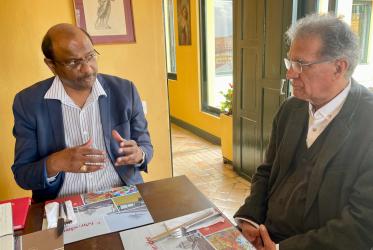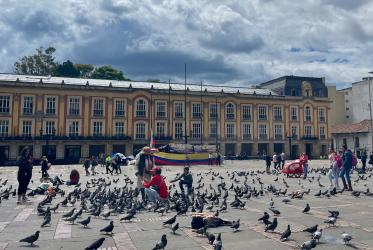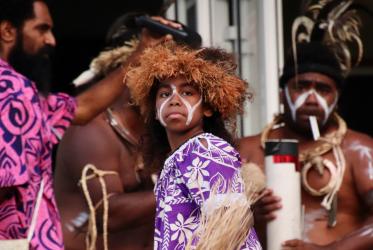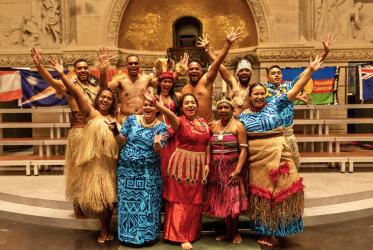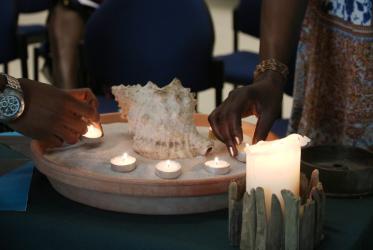Displaying 1 - 20 of 59
18 January 2024
Pacific Conference of Churches prepares for 12th General Assembly
15 November 2023
WCC extends prayers for Tonga in wake of volcanic eruption
17 January 2022
COVID-19 in conflict zones: “a crisis within another crisis”
27 November 2020
Applications open for WCC Eco-School
22 October 2020
